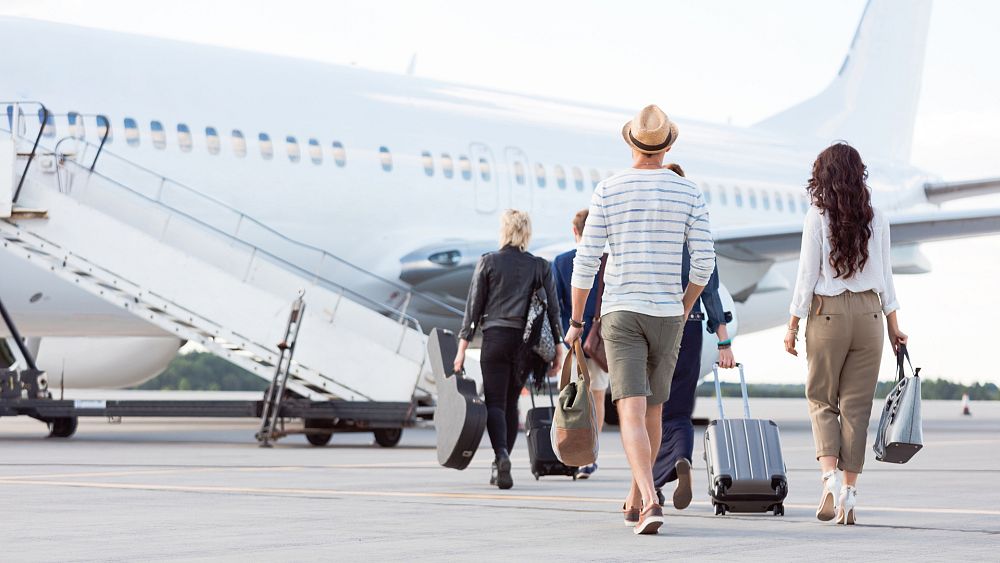The global availability of long haul flights should be capped to meet climate goals, a new report urges.
UK non-profit the Travel Foundation has mapped out future scenarios comparing business-as-usual with emissions-cutting changes in the tourism industry.
The research report, entitled Envisioning Tourism 2030, aims to help policymakers and the tourism industry on the road to net zero greenhouse gas emissions.
It came a day after scientists reported that there’s no replacement for jet fuel in the short term - throwing cold water on the UK government’s ‘jet zero’ ambition.
After calculating the annual CO2 emissions of tourism under various scenarios, the Travel Foundation concluded that drastic action is required - and fast.
What is travel and tourism’s global carbon impact?
The tourism sector is estimated to be directly responsible for around five per cent of global CO2 emissions. This takes into account transport, energy use in accommodation and tourism activities.
If indirect emissions, such as those from food producers and laundry services, are taken into account, this rises to between eight to 11 per cent, according to the report.
As the world’s population grows and travel becomes more affordable, the tourism sector is on course to double in size by 2050. This could cause a steep rise in emissions, with the industry using 66 per cent of the world’s remaining climate budget between 2023 and 2100.
What is net zero and how can the travel sector achieve it?
Under the 2015 Paris Agreement, countries agreed to try and limit global warming to 1.5°C above pre-industrial levels. This requires cutting greenhouse gas emissions.
Net zero means cutting emissions to as close to zero as possible. This can be achieved through reducing carbon-heavy activities and offsetting emissions, for example by absorbing them from the air or reducing them elsewhere. Many countries and industries have set 2050 as their target year for achieving this goal.
Some airlines have started to build carbon offsetting into their fares, while many others offer it as a paid add-on.
Such schemes have been heavily scrutinised for failing to deliver the reductions they promise and for not tackling the root cause of the problem. They are also likely to become scarce as more and more industries lean on them. This means they are not a long term solution.
“Ultimately offsetting may be, at best, a short-term partial stopgap for this decade, but it is not a credible longer-term solution,” it reads.
Electrification of transport is more promising but isn’t progressing fast enough. The report predicts that electric aircraft could come into service on long-haul flights by 2050 yet it would take decades to replace a global fleet.
Sustainable aviation fuels are another emissions-curbing possibility. However, their availability is limited as biofuels require land, e-fuels require renewable energy and others require waste.
Increasing taxation on the tourism sector was found to only temporarily reduce growth.
Net zero can only be achieved by combining all of these measures along with limiting use of the most polluting forms of travel, the report concludes. As part of this, incentives for frequent flying - such as loyalty schemes - should be removed, it suggests.
Could fewer flights be available in future?
Until the aviation sector is fully able to decarbonise, long distance flights should be capped to 2019 levels, the report urges.
This includes return trips of over 16,000 km. While these represent just two per cent of air travel, they are by far the most polluting - accounting for 19 per cent of total tourism emissions.
They are also set to quadruple by 2050, making up 41 per cent of tourism’s total emissions (up from 19 per cent in 2019), according to the report.
How will a decarbonised travel sector impact your future holidays?
If the report’s advice were put into action, it wouldn’t necessarily mean the end of tourism.
Travellers would take the same number of trips, but they’d go shorter distances, it predicts. Greener forms of transportation, like trains, electric cars, coaches and ferries would overtake air travel.
Those who travel long-haul would stay longer in their destination.
To support this, funding would flow into rail infrastructure and hotels would incentivise longer stays with special deals.
What is already being done to curb tourism emissions?
In France, some short haul flights have been banned where there is a train or bus alternative. Capacity caps at Amsterdam’s Schiphol Airport have reduced strain on the understaffed airport while slashing the number of flights it serves.
Subsidised rail ticket schemes in countries like Germany, France and Spain are encouraging train travel, while the EU is supporting improved rail connectivity in Europe.
Some European countries, including France and Sweden, have mandated levels of Sustainable Aviation Fuel to be used in planes, while an EU-wide mandate is under consideration.
Electric ferries are also being introduced in some countries, including Norway, Spain, Sweden and the UK.


